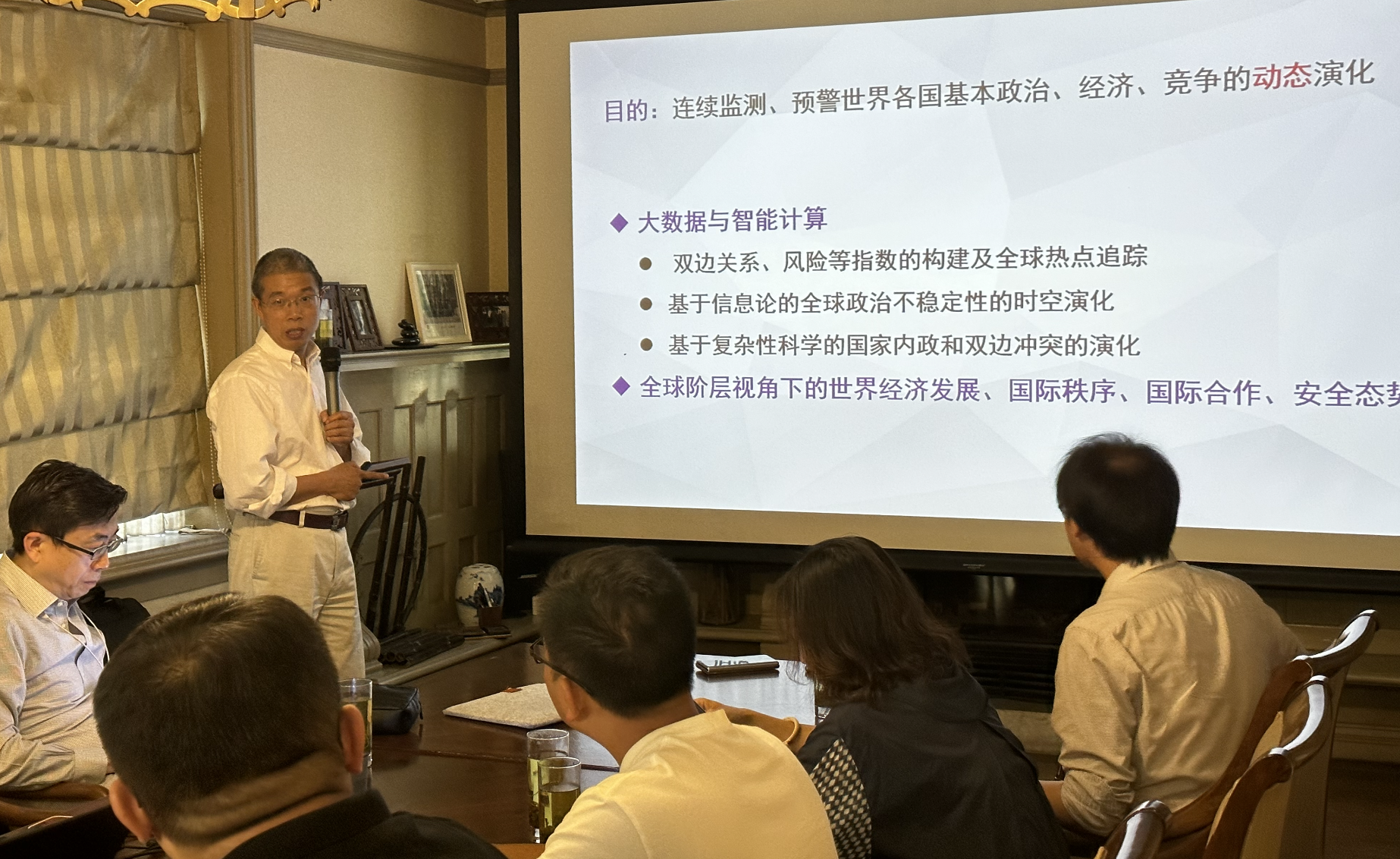
On September 21, the Institute of Area Studies Peking University (PKUIAS) held the fifth lecture of its “Master Salon” series as part of its fifth anniversary celebrations. The lecture, titled “Systematic Complexity Science and Area Studies,” was delivered by Prof. Gao Jianbo, a geography science professor and doctoral supervisor at Beijing Normal University. Prof. Zhai Kun, deputy director of the Institute, moderated the session. Experts and scholars, including Kong Tao, director of the Research Division at the Institute of Social Science Survey at PKU, participated in the discussion.
Prof. Gao started by discussing the importance of conducting area studies using complexity science and systematic science from the perspective of data quality. He outlined three potential approaches for integrating systematic complexity science into area studies: (1) Continuous monitoring and early warning of the dynamic evolution of basic politics, economy, and competition among countries; (2) Utilization of big data and intelligent computing; (3) Analysis of world economic development, international order, international cooperation, and security situations from a global class perspective. Prof. Gao emphasized that complexity science is more about concepts than models, citing examples like chaos (sensitivity to initial values), fractals (self-similarity), long-range correlations, heavy-tailed phenomena, and non-stationarity. He argued that these universally applicable concepts could help better articulate and refine problems, leading to breakthroughs in area studies.
Next, Prof. Gao used the Global Database of Events, Language, and Tone (GDELT) as an example to illustrate how to build an index system in international relations and analyze area-specific issues. He presented the evolution of the Bilateral Relation Index and the International Image Index (regional or global), focusing on the asymmetry in these indexes to identify regional hegemonies. He also demonstrated methods for quantifying the political instability of countries globally using relative entropy and approaches for depicting bilateral relations with random fractal theory.
Finally, Prof. Gao proposed using indicators that show comparative wealth and each country’s share of global total wealth to analyze the global hierarchical order. He discussed globalization, anarchy, and the hegemony of the US, highlighting that there is a global hierarchical order in international affairs. He noted that the impacts of development on this order are the most primitive and enduring causes of conflict replacing cooperation. Prof. Gao also mentioned that big data could advance research on ASEAN countries, deepening the study of their political and economic hotspots, bilateral relations, domestic politics, and risk evolutions.
During the discussion session, Kong Tao engaged with Prof. Gao on topics such as the systematic bias in big data from international news media, theoretical interpretations of trend depiction in systematic complexity science, global trade, and international competitiveness. The audience, comprising teachers and students, actively asked questions about big data and area studies, modeling and strategic situation assessment, and quantitative research methods. Prof. Zhai Kun summarized the lecture, emphasizing the fundamental role of systematic complexity science in interdisciplinary research. He emphasized the fundamental role of systematic complexity science in interdisciplinary research, and called on teachers and students to seize the opportunity of area studies being ranked among the first-level disciplines to promote the in-depth research and the development of the discipline.


